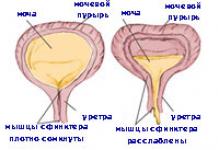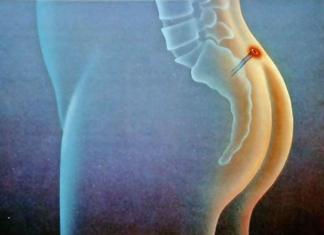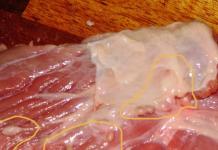: Teen (T)
requirements
Windows 95, Pentium II processor 233 MHz, 32 RAM, 200 MB free hard disk space, 4X CD-ROM
DirectX 7.1 compatible 8 MB video adapter, 16-bit sound card
Recommended:
Windows 95, , , , Pentium II processor 300 MHz, 64 MB RAM, 400 MB free hard disk space, 4X CD-ROM, DirectX 7.1 compatible 8 MB video adapter, 16-bit sound card
Disciples II: Dark Prophecy(With English- “Disciples II: Dark Prophecy”, as well as “Disciples II: Eve of Ragnarok”) - a turn-based strategy computer game with RPG elements Strategy First, released on January 24, 2002. The game is a sequel to the 1999 game Disciples: Sacred Lands.
Game process
Other Features
Significantly improved 2D graphics.
Compared to the previous game in the series, the artificial intelligence of opponents has been improved - in Disciples II they are able to assess their chances against the player’s heroes and retreat when the latter has a clear advantage. The behavior of neutral units on the strategic map has also been changed - if the enemy gets too close to them, they can attack themselves.
The plot content of the campaigns has been significantly improved. In addition to the main plot and replicas when taking cities, available in the previous game, almost every mission has been added Additional tasks and extensive dialogues between allies and adversaries.
It became possible to conduct the battle in automatic mode. There is also a button for calculating the outcome of the battle, allowing you to quickly end the fight.
It is also possible to change the game resolution from 800x600 to 1024x768 or 1280x1024.
Plot
The game's plot consists of four campaigns (for each race), with seven missions in each. Unlike the first part, the plots of the campaigns are partially mutually exclusive, although the general outline is preserved in them. The plot as a whole continues the story of Disciples: Sacred Lands. It is noteworthy that the names of the Emperor of Men (Demosthenes) and his heir (Uther) are first mentioned in Disciples II, although these personalities play an important role in the plot of the first game in the series.
Background
The events of the previous game in the series, Disciples: Sacred Lands, are called the First Great War. Disciples II begins ten years after the end of this war. Betrezen dies, the Mountain Clans are disunited and await the end of the world, the Empire is in crisis - Emperor Demosthenes does not engage in state affairs, since he cannot survive the loss of his wife and son Uther.
Empire
Since the First Great War, the alliance with the dwarves has not been restored, Emperor Demosthenes retired - and the Empire was actually ruled by the aristocrat Hubert de Leili, because of which the state fell into chaos and found itself on the verge of civil war. Dark sects and various prophecies, including those about the coming of the savior of the Empire, spread in large numbers.
The head of one of the sects, Erhog the Dark, tried to poison the emperor, and although her plans failed and she was killed, Hubert de Leili, taking advantage of the moment, offered himself as the ruler of the Empire, and many aristocrats went over to his side. The Emperor decided to enlist the support of the dwarves, and as a gesture of goodwill, he ordered the release of the Mountain Clans diplomat Slukarizh Darkstone from captivity of the undead. After his release, the High King of the Dwarves, Morok the Skyguard, entered into an alliance with the Empire. Suddenly, rumors begin to appear about the return of the heir to the Empire, Uther, who disappeared ten years ago during the First Great War.
Meanwhile, Hubert de Leilly goes into open confrontation with the Empire, wanting to take power by force. Rumors about Uther's return turn out to be true - the boy, accompanied by troops of dwarves, reached the lands of the Empire. Despite the betrayal of another aristocrat, Philippe d'Agincourt from the city of Findar, the Empire manages to kill Hubert de Leilly, and Demosthenes is reunited with his son. For his age, Uther is incredibly strong and wise, and his father entrusts him with putting out the uprisings in the southern cities. Suddenly, the Mountain Clans break off the recently concluded alliance. Morok the Skyguard became mentally damaged and ordered the death of Uther. The awakened undead and demons of the Legions of the Damned are also looking for the death of the heir. Uther avoids all dangers and unexpectedly brutally deals with the rebels. He does not at all regret breaking the alliance with the gnomes and laughs contemptuously at the “demi-humans.”
Meanwhile, the awakened undead attack the lands of the elves. Remembering the long history of good neighborly relations, Demosthenes sends his troops to help the elves. Elves gratefully accept the support of people.
Demosthenes, sensing the approach of death, decides to crown Uther. But he contemptuously refuses the crown, kills his father and disappears, summoning several demons. The Imperial command decides to kill the traitorous prince. But by killing the heir, people only freed from the physical shell a huge demon who wanted to destroy the civilizations of people, elves and gnomes. The Dwarven Princess, Yaata'Halli, decides to renew her alliance with humans so that the Mountain Clans and the Empire can work together to confront the Legions of the Damned, who, in turn, have enlisted the help of the undead. Uther the demon, with the help of the demons under his control and military tricks, tries to defeat the troops of the Empire, but they, united with the Mountain Clans and with the support of the elves, destroy this incarnation of him too.
The Empire remains without an Emperor and without an heir to the throne.
Undead Hordes
Having avenged the death of her husband Gallean, the goddess Mortis spent ten years searching for a means to revive her husband. The appearance of Uther gave her hope of resurrecting the god of the elves - his blood was necessary for the goddess for the resurrection ritual. According to rumors, Uther was imprisoned in the mines of Timmoria in the lands of the Dwarves. With the help of the Phantom Wolves bandit subordinate to Hubert de Leili, the Mortis warriors captured the library, in which they found maps of Timmoria. When they went there, they actually found Uther guarded by demons.
By killing the young incarnation of Betrezen, the Hordes obtained his blood. Meanwhile, Mortis learned that the Mountain Clans diplomat Slukarizh Dark Stone had set off to negotiate with the Empire. It was dangerous to allow a union of two states, so the undead were ordered to kill the ambassador. However, the murder of the Dwarf diplomat prompted a military response from the Empire. Humans and dwarves formed an alliance anyway. The Undead Hordes were faced with the task of capturing the strategically important city of Gunneria. Despite the betrayal of the Phantom Wolves, who had previously always helped the undead, the Hordes captured this settlement.
It was possible to resurrect Gallean only on the sacred lands of the elves, but the Undead Hordes unexpectedly encountered another enemy - the Bone Lord, a former servant of Mortis, who began to challenge the sole power of the dark goddess over the undead. The Bone Lord entered into an alliance with Hubert de Layly and his "Phantom Wolves", as well as with the necromancer Erhog the Dark. In their search for the Tower of the Bone Lord, the Undead Hordes captured a precious artifact - the Eye of Doragon. During the search, Mortis, as Soloniel, the creator of her race, was asked to protect her daughter by the sea queen Tilligullash. In gratitude for fulfilling her request, she helped the undead defeat the Bone Lord.
Having captured the armor of the Bone Lord and once again placed it in the service of Mortis, the Undead moved into the sacred lands of the elves to resurrect Gallean with the help of Uther's blood. Despite the fact that the Mountain Clans entered into an alliance with the barbarians, the Horde troops managed to pass through their lands to the territory of the elves. Having dealt with the dragons with the help of Doragon's eye, the undead entered the lands of the elves. Those warned by the prophet had already prepared their troops. Mortis ordered her troops to kill the ruler of the elves, Queen Taladriel. The troops of the Empire and Mountain Clans came to the aid of the elves.
The undead tried to convince the elves not to interfere with Mortis, since the desire to resurrect Gallean should have been characteristic of their people. But the elves, suspecting deception, refused to negotiate. It turned out that many elves do not know that the goddess of the undead Mortis is the elven goddess Soloniel. Despite the resistance of the elves who allied themselves with the Empire and the support of the dragons who obeyed Taladriel, the Hordes killed the queen of the elves.
Mortis resurrected Gallean on sacred ground, but he disappeared without saying a word to her, leaving her in horror and grief - he could not accept what she had become, and did not forgive the evil that she caused to those living on Nevendaar.
Mountain Clans
Since the First Great War, five of the twelve dwarven clans have fallen into decline, and the sacred runes given to them for safekeeping have been lost. The new king of the dwarves, Morok the Skyguard, ordered that three of the lost runes be found. While searching for the runes, Morok received terrible news - his son Gimner, sent on a mission to close the gates to the Underworld, died, caught between two armies - the Hordes of the Undead and the Legions of the Damned. The Skadi rune, which was with the prince of the dwarves, went to the demons. Although, according to information, Gimner managed to seal the Gate, Betrezen still penetrated Nevendaar. The dwarves found the runes of the three lost clans and the Skadi rune.
After acquiring four runes, the Mountain Clans received a call for help from the Empire. Hubert de Laly captured several Imperial cities and the emperor had to flee. Morok the Skyguard agreed to send his troops to suppress the rebellion. As the Dwarf troops crossed the mountains, they met a human youth who called himself Uther and asked to be taken to his father, Emperor Demosthenes. Immediately they met a Wild Giant living in a city that previously belonged to the Mountain Clans. He handed the dwarves another rune and offered to reoccupy the city, and he himself came under their command.
After suppressing rebellions in the cities of the Empire, the Dwarves brought Uther to his father, who thanked the Clans for returning his missing son. But the high king of the gnomes Morok never came to terms with the death of Gimner, planning to return him with the help of Frigga’s rune. Although the clan sages were against such a ritual, Morok insisted on carrying it out.
Soon Morok announced that Uther was not who he said he was and that he was dangerous. Morok immediately broke the alliance with the Empire and even ordered the killing of the ambassadors of the human state. By order of Morok, the dwarves attempted to resurrect Gimner, but for some reason only a half-corpse rose from the grave, capable only of begging to be killed. The Valkyrie sent by Wotan took the unfortunate prince and said that the runes had lost a significant part of their power. Morok, having learned what had become of his son, became mentally damaged and attacked the fellow tribesmen around him. Morok's daughter, Princess Yaata'Halli, had to be ordered to kill her mad father. She led the dwarves and first of all decided to continue the unification of the Clans and once again restore the alliance with the human Empire.
While defending one of their cities from demons, the dwarves discovered that the city was also threatened by a human magician with a strong army. By killing him and freeing the ancient ruins from people, the Clans found the last lost rune. The keepers of wisdom began to persuade the queen to honor Wotan with a ritual that had not been performed for ten years, but Yaata'Halli, concerned about the expansion of demons and undead, ordered the ritual to be postponed. Soon, a Valkyrie appeared to the Clans and left them a scroll written by Wotan himself - the scroll said that the god of the gnomes was losing his strength and that the ritual should be carried out as soon as possible. Having stopped the expansion of the Legions of the Damned and the Hordes of the Undead, the queen ordered movement to the sacred lands to conduct the ritual.
Suddenly, an obstacle stood in the way of the Clans in the person of the magician Hugin, who decided to use the power of the runes for his own purposes and subjugated the hordes of centaurs. Having defeated Hugin, the Dwarven troops reached the sacred lands and successfully carried out the ritual. Wotan's Valkyries assured the Clans that there was hope for salvation. But, nevertheless, the predicted end of the world was approaching, and the time of natural disasters began. The dwarves rushed to the stronghold of Morok, under the protection of the runes, and there was no news only from the Ironhill clan. Yaata'Halli sent her messengers there, but it turned out that the city was burned by the terrible dragon Nidhogg. The Valkyrie who appeared to the gnomes said that a spell had been cast on the snake that prevented it from killing gnomes further, but they needed to make a pilgrimage to the grave of the gnomes’ ancestor Gel in order to be saved from the monster.
Having made this and other pilgrimages to the graves of ancient heroes, the Clans received Wotan's blessing and with his help killed the serpent, thereby preventing the prophesied end of the world. Yaata'Halli was officially crowned.
Legions of the Damned
Since the First Great War, Betrezen could not free himself from the underworld, imprisoned by the magic of the runes of the Mountain Clans. The Dwarven Prince Gimner Skyguard was sent to the gates of the Underworld with a mission to renew the seal on them, and to prevent this, the Legions had to kill him. With the death of the prince of the Mountain Clans, the demons saw that a youth in rags emerged from the Gates of the Underworld. They recognized him as Betrezen, who had inhabited the body of the heir to the Empire, Uther.
At that moment, the Undead Hordes appeared and attacked Betrezen to obtain his divine blood. Uther needed to hide from the servants of Mortis in the northern lands. Having escaped the threat of the undead, he decides to subjugate Hubert de Laly, who has great power in the Empire, to his will. Many people, recognizing Uther, went over to the side of the Legions. Hubert de Laly happily made an alliance with the demons to bring chaos to the Empire and come to power.
Meanwhile, Betrezen ordered the Legions of the Damned to find the place of imprisonment of the powerful demon Astaroth so that he could reunite with the army of demons. With such a powerful ally, Uther ordered the Legions to capture three strategically important cities. But suddenly an onyx gargoyle appeared at the gates of the capital and forbade the demons to attack the lands of the Empire and the Mountain Clans in the name of Betrezen. The demons were surprised, since they knew that Betrezen was with them - and he ordered the death of the traitorous gargoyle.
The demons were also approached by the undead, demanding that Uther be given to them, and members of a strange sect - occultists. Soon Astaroth betrayed the demons and began to act according to his own will. Despite resistance from the Clans and the Empire, as well as wild giants, the Legions captured the northern lands. After capturing three cities, Uther decided to deal with the Hordes of the Undead. However, when the Legions prepared a trap for the Mortis troops, it turned out that there was no trace of any undead there. Uther, to whom the demons turned with a question, said that he was in fact not Betrezen, and that he intended to deal with the demons loyal to the real lord of hell with the help of Astaroth, who had come over to his side. The legions were divided. Demons loyal to the real Betrezen had to kill Astaroth in order to avoid death and save their master. Carrying out a campaign, the demons provided assistance to the orcs who turned to them.
Defeated, Astaroth fled from the Legions to Uther. It turned out that the ritual of incarnating Betrezen into Uther’s body, carried out ten years ago, was only partially successful: the heir to the Empire received part of Betrezen’s strength and mind, but remained an independent person. Soon the hellish priests saw prophetic dream- the power of their ruler increasingly went to Uther. In order for Betrezen to live, the Legions needed to kill Uther and protect the Hell Gate through which Betrezen could speak to his priests. When the demons advanced towards the fortifications of the Empire, where Uther was staying, they were offered help by the greenskins, or rather, their king, the black dragon Garkenash. The Mountain Clans also offered their help.
When Uther was finally killed, Betrezen was freed from his power, but remained imprisoned in his fiery prison.
addon.
In 2006, it was localized by the Akella company and released as part of three collections: Disciples Gold, Disciples World And Disciples II: Rise of the Elves Gold. In publications Disciples Gold And Disciples World The game can only be installed together with the Disciples II: Gallean’s Return addon. In publications from Akella, the original voice acting of the characters is retained, and all videos and texts are translated into Russian. A detailed user manual in Russian is installed along with the game.
Developer: Strategy Fist
Publisher: Strategy Fist
Localization: Russobit-M
Official website of the game: http://www.disciples2.com
System requirements
Minimum:
Windows 95/98/Me/XP/2000
Pentium-II 233 MHz
32 MB RAM
8 MB video card, DirectX 7.0 compatible
2x CD-ROM/DVD-ROM
1.1 GB free disk space
Recommended:
Windows 95/98/Me/XP/2000
Pentium-II 300 MHz
64 MB RAM
16 MB video card, DirectX 7.0 compatible
DirectX 7.0 compatible sound card
2x CD-ROM/DVD-ROM
1.1 GB free disk space
Introduction
Let's try to assess the situation in the world of turn-based strategies, aka Turn Based Strategy. At the same time, we will immediately agree that we will discuss only really popular games. We will only touch upon, so to speak, the classics, although, of course, there are many very worthy projects of this genre, and, what’s more pleasant, are domestic ones, for example, “Demiurges”. And it immediately becomes clear that the entire history of modern turn-based fantasy strategies fits into one line. However, the adjective “fantasy” can even be omitted here. I remember the whole universe of “Heroes Might & Magic”, which began with King’s Bounty. And it remained, existing somewhere in the depths of the soul of every player - just a week ago my friends and I played the second (!) “Heroes” with great pleasure , each turn wondering how it was possible to SO mutilate a magnificent series with subsequent parts... Then someone tried to hesitantly object... of course, there was the epic "Master of Magic" (it appeared in ninety-five almost simultaneously with the first "Heroes"), there was the unforgettable "Lords of Realms" (already in December of '96, the second, more popular, part of the game was released. This is what they have now decided to turn the majestic "Lords", the fourth part of which threatens to appear in the near future). causes regret and long-term depression in sad thoughts about the future of the gaming industry. However, all of the above, in order to avoid unnecessary debates, ardent fans of all the games listed should be taken solely as my personal opinion about the status quo within this genre.Everything would have continued so wonderfully if the kind gentlemen-comrades-publishers-developers (or rather some evil higher powers) had not decided to ruin the Heroes series overnight. Indeed, it so happened that with the advent of the fourth part, the “Heroes” series began to fade (it’s amazing how this coincided with the simultaneous decline of “Might & Magic” and the collapse of the entire 3DO office. Something had to happen. The game began to have full-fledged competitors We are talking, of course, about “Age of Wonders” and “Disciples”. Oddly enough, the stories of both games were very similar. weightily (in the second part), which, however, differed little from the first (the same “engine”), but they won their place in the sun. Thus, it seems to me, we got three pillars on which today. the genre of fantasy turn-based strategy is based - classic and honed over the years "Heroes", and two newcomers: the slightly slow and clumsy "Age of Wonders" and the rustic but dynamic "Disciples 2" and its fresh addition "Shadow Magic". has already been reviewed earlier, so today we just have to take a closer look at the second newcomer...
Peculiarities
Today we will look at the second part of the famous turn-based strategy "Disciples: Sacred Lands", along with its two additions. The game was released quite a long time ago, about six months ago, so that domestic localizers even managed to release a Russian version of the game called “Disciples II: Eve of Ragnarok.” However, this joyful event happened quite recently, so this could also become one of the reasons for writing an article. Another reason for the appearance of this review was the recent release of two separate additions to the second part of the game, one of the additions containing a campaign for the dark forces, and the other for the light ones, they even bear the corresponding names “Guardians of Light” and “Servants of Darkness” ". Both add-ons also contain the original version of the game (it is not required to install the add-ons), and when installed on the same computer, they form a single saga containing four campaigns at once (and together with the original ones - eight) and called "Gallean's Return" ". Since there was no review of "Disciples II" on our website, it was decided not to limit ourselves to a review of innovations in the add-ons, but to make a full review of "Gallean's Return", that is, both the original game and both of its add-ons. Moreover, since its release, many “patches” have been released that eliminate both technical errors and problems of balance and other game mechanisms that prevented you from fully enjoying the game before. The ability to install higher graphic resolutions (up to 1280x1024) was also implemented, because initially the games only supported 800x600 in 16-bit color.
However, the ability to change permissions appears both after installing add-ons and after the last patch. It's a pity that only the view benefits from this. global map, which has become more extensive, and all other screens of the game simply received an artistic frame and still contain a minimum of information.

But at the same time, answer one question: have you seen SUCH system requirements lately? Only on my last visit to the paleontology museum with dinosaurs. At the same time, everything looks more or less beautiful, although of course, the higher the resolution, the slower it works.
So, what is Disciples II: Dark Prophecy? On the lands known to us from the first part of the kingdom of Nevendaar or the “Sacred Lands”, there are four races - Empire, Mountain Clans, Legions of the Damned and Hordes The undead (Undead Hordes) fought for life and death in a mortal battle, led forward by their gods. In addition to the four main races, there are also “neutral” races in the game - elves and greenskins - that is, orcs, trolls and other living creatures.
At the beginning of the game, you own one, main castle, where you can build buildings, train your soldiers and hire a leader-commander who will lead your soldiers into battle. Also, you will have to collect resources, create magic spells, etc., in a word, do everything that includes the concept of a fantasy turn-based strategy. In total there are about two hundred units in the game, of course, along with upgrades for them and neutral ones (that is, not available for production in castles). Here we are offered about a hundred magic spells, divided into four magic schools, and a system for gaining experience, separate for each of your units. Of course, online play is available in multiplayer mode, and there is also a Hot Seat mode..

...that is, the game takes turns on one computer.
Now, what is "Disciples II: Gallean's Return"? These are two simultaneously released additions to the game, which occupy a total of four discs (two each) and contain one additional campaign for each race and a number of additional scenarios. In the original version of the game, each campaign contains about seven missions, plus additional scenarios and a random map generator. In the expansions, the maps have significantly increased in volume, and there are also significantly more bonuses and places to visit.

Many minor cosmetic improvements have also been implemented (they are also made after installing the patch), such as enabling and disabling the resource panel, etc. Everything that has to do with the graphics in the game and fits into the capacious bourgeois word “artwork” is characterized by the French word Noir (Noir), and although games with this atmosphere are not often found (of the popular ones, I immediately remember only the old “Blood Moon Chronicles” "), they also have a direct bearing on the fantasy atmosphere, but with some caveats. All of the above means that the atmosphere in the game will be as dark and bloody as possible; no less gloomy and grotesque faces of the characters will look at us from the screen. Despite the fact that the graphics “engine” remained the same, all the graphics in the game, compared to the first part, were redesigned (the developers would not have been forgiven otherwise), all the portraits, cities, and landscapes were redrawn, and so on. That seems to be all - let's move on to the plot...
Plot of the main game
The events of the main part of the game tell about the coming of the Chosen One to the world of Nevendaar, bringing with him inevitable changes for all things. The world of the Sacred Lands, Nevendaar is a chessboard where people and all other creatures are just toys in the hands of the gods. Huge empires are created and die, insignificant pawns in the hands of the gods make their plans, killing each other, striving for power, but they do not even suspect that the gods have their own plans, and they only use them for their needs. The gods do not even initiate their followers into their plans, but simply use their blind faith, sometimes bestowing mere mortals with the fruits of their conquests, or, on the contrary, they carry out bloody executions for the slightest offenses. It’s not very pleasant to realize that you are a toy in the wrong hands, but such is life in this world. The pantheon of gods consists of four persons, that is, each of the four races has its own god. The inhabitants of the Empire build churches in the name of the Highfather, all the Undead and other dead persons honor their queen Mortis, all members of the Mountain Clans have long worshiped Wotan (Wotan - Wagner's One of the "Ring of the Nibelungs", here are the Valkyries, Ragnarok and etc.), and finally, all the inveterate heretics and other creatures cursed by the High Father chose Bethrezen as their god,
lord of the local hell. The elves believe in their god Gallean, whom, however, everyone else does not recognize and considers an impostor.
The moment the main part of the game begins is almost immediately after the end of the First Great War, a war when the forces of good, at great cost, still managed to defeat the forces of darkness, that is, the events of the first part of the game. Almost all races are in decline, trying to rehabilitate themselves after the war, and despite the fact that Betrezen was imprisoned inside a huge mountain, the lands of Nevendaar are very far from calm. The people of the empire are dying of hunger and disease, lawlessness, chaos and all the things inherent in such a situation reign all around, and, of course, there is a division of power. The Mountain Clans, despite the victory, also do not revel in it too much. The Dwarves are demoralized by the loss of their king, killed in the war by the treacherous Mortis while they were busy destroying Betrezen and his army. Tribal sages prophesy the imminent arrival of Ragnarok and the end of all things. The goddess of death Mortis, who took revenge on the dwarves for the death of her husband Gallean, now wants to revive him and is preparing an even more terrible revenge on the Mountain clans who killed the elf. Towards the end of the original game, she manages to revive her husband - this is where the main intrigue of both additions arises. And the Legions of the Damned, of course, are busy searching for a means that can free Betrezen from captivity, who was imprisoned inside the mountain by the joint efforts of the Empire and the Mountain Clans in the first part of the game. Of course, they also dream of revenge. This is the state of affairs at the beginning of Disciples: Dark Prophecy.
The plot of the additions
Traditionally, there are video cutscenes for additional campaigns of all four races, but they are of little content.
We have lengthy opuses like “and now the evil demons are again gathering in strength to harm civilians” or “the empire is again in ruins, and the greedy barons are reaching for the remaining riches and are abusing (again) peaceful citizens.” The main plot is revealed through dialogues and text inserts before and after completing missions.

So, in addition to the main game, we have two add-ons, the action in which takes place after the events of "Dark Prophecy", the world has not yet woken up after the Great War, when again the tireless gods drive their proselytes into a bloody battle, trying to win at least a drop of power. A kind of war without a reason, and therefore without an end. And then the elves raised their heads: according to the prophets who appeared recently, their god Gallean is returning right from the outskirts of oblivion. What’s noteworthy is that in the expansion we have four separate campaigns (one for each race), united by a common plot. Each warring side begins a new conflict in its own way, and subsequently the storylines intertwine and form a single, coherent plot. So, for example, by the time the campaign for the Empire begins, the treacherous Count Crowley is already in full swing with the Legions of the Damned and proclaims the Church of Bethrezen, so the role of the Inquisition is turned upside down. But, playing as the Demons, we will only be at the beginning of the intrigue, when Crowley only invites the Legions of the Damned, led by an evil god, to reign over people. On the other hand, the tragic quarrel between the goddess of death Mortis and her lover Gallean, who rejected her, remains overboard. In general, it’s difficult to talk about the plot of the add-ons without revealing all the secrets of the main game.
The first expansion "Servants of the Dark" contains two campaigns that we will have to go through, playing as two "evil" or "dark" races - one dedicated to the dark path of the Legions of the Damned, and the other to "life stories" (so to speak) Undead Hordes. The plot of the first story begins with the servants of Betrezen coming up with a great idea: since it is impossible to drag Nevendaar to hell, why not bring hell to Nevendaar?

Since the mountain does not come to Mohammed, Mohammed goes to the mountain. To do this, it was decided to spread a pestilence over the continent, created according to a special recipe by Betrezen himself, but for this the Legions will need a huge amount of magical energy, which the war-exhausted demons do not have. Therefore, they do not even hesitate to use the energy released during the revival of Gallean and draw it from the revived hope and faith of the elves. But you still need to get it. For this, the demons decide, of course, temporarily, to unite with people, especially since they themselves offer them an alliance. At the same time, the reborn Gallean rejects his former lover, the undead goddess Mortis, after seeing that she has turned into "something" devoid of feelings and emotions. Offended by the refusal of her lover, who was enlivened by her aspirations, Mortis decides to bring down the despair and hatred that has accumulated over the years of anticipation against the people of Gallean - the elves. She wants to wipe out even the slightest mention of this race from the face of the earth. To do this, she deceitfully enters into a temporary alliance with her seemingly main enemies of the Undead - the Mountain Clans, who once killed Gallean. A smart move, because the gnomes have always been the most important enemies of the elves. In the plot of this add-on, we clearly notice how the “dark” races manipulate the “light” ones with deceit.
In the second expansion, "Guardians of the Light", we are given the opportunity to see part of history through the eyes of the forces of light and goodness and play for the Empire or Mountain Clans.

At the beginning of the events unfolding in this supplement, the Empire is in a state of permanent decline, while on the one hand, self-proclaimed princelings are squabbling over a piece of land, people higher up are fighting for the vacant throne, Inquisitors are sowing reasonable and good both among the infidels and among the innocent vassals of the Empire, who honor the precepts of the Supreme Father, but who had the misfortune of not pleasing the holy fathers. Meanwhile, one of the most likely contenders for the throne and the most ardent fighter against heretics, Count Crowley, seems to be playing tricks with Betrezen himself, dooming supposedly heretics to mass executions, but in fact making sacrifices to the God of Darkness. We start playing for the gnomes immediately after Ragnarok, which occurred in the main part of the game. In the second campaign, the elders of the Mountain Clans, deceived by Mortis with the help of the illusion of the Sacred Wolves, try to perform an ancient magical ritual that allows them to come into contact with their negligent god Wotan and, finally, ask him for mercy for his children. It is clear that for this they will need large forces, so they are trying to revive their former power, to gather the scattered tribes, as well as their leaders and legendary heroes with whom contact was lost during the war. The insidious Mortis hopes that the dwarves, who have regained their strength, will help her take revenge on the hated elves. But do these plans coincide with the plans of the dwarves themselves?
Races
As mentioned above, the game has four races available for the player to play, plus two additional, neutral ones. Several new units appeared in the add-ons, but their appearance did not in any way make significant adjustments to the game strategy for each of the races. In this chapter, I will give a brief overview of the capabilities that each of them has, as well as the types of units and magic spells that will be at our disposal when choosing a particular race. Moreover, when choosing a development path for your combat units, you may be presented with up to three different class options with different capabilities. In the capital of any race, you can hire units of five groups: melee, ranged, magical, “support units” and special.Empire

- the empire is mainly populated by people, which means you will have at your disposal a variety of units of human origin. Units conducting close combat are represented by two types: knights and paladins of various modifications, or inquisitors. Knights have increased damage power in melee combat, or the ability to deal two hits at once per turn. The faith of the Inquisitors allows them to remain immune to many attacks from the undead or demons. The Empire also has archers at its disposal, and subsequently Imperial Assassins, who poison the enemy with poison. The empire's magicians have mastered the air element and inflict lightning damage on their enemies. Very important feature troops of the empire is the presence of healing units in them. When choosing one of the development paths, clerics will heal all your fighters at once; when choosing another, they will concentrate all their attention on one unit and even revive the dead. A special squad of people - the Titans.
Mountain Clans

- here we are offered a variety of squads of gnomes. The elders are waiting for the arrival of the next Ragnarok, the Valkyries are ready to carry away the most desperate fighters from the battlefield directly to Wotan’s feast. Their units are very strong in close combat. Dwarves use tribal magic, which has the power to enhance the fighting skills of warriors. Inventors use various technical means in battle, allowing them to increase the destructive power of long-range units armed with crossbows and throwing machines, or to bring flamethrowers onto the field, spraying fire on all enemy units. The elementalist can summon elementals of various elements to the battlefield.
Legions of the Damned- magical creatures of demons - Succubi - have the power to transform foreign troops into insignificant imps,

which will be easy for even a child to deal with. Moreover, a pumped-up demon can turn all enemy units into imps at once, however, the spell lasts only a limited number of moves. The second type of demonic magicians specializes in fire rains. Demon warriors fight with Hellblades and have good immunity to fire. The demons consider gargoyles to be a unit wielding throwing weapons, which, due to their rocky consistency, have very high immunity against conventional weapons, but occupy two cells on the battlefield at once. Special units - Demons, Monsters and Overlords behave well in both melee and ranged combat, and also have magic that can reduce the amount of damage inflicted by the enemy.
Undead Hordes- the prerogative of the undead is the magic of immobilization, as well as the ability to suck life energy from enemy units and transfer it to their own. Among the Mortis units we can meet all kinds of vampires (Elder Vampires drink blood from all enemy units and give it to their wounded), liches and others. The Cursed Knights can be considered the main striking force of the undead in close combat. Also, in the capital, you can hire a Werewolf, who is absolutely invulnerable to conventional weapons and can only be destroyed by magic, while he himself fights very well in close combat. A variety of worms and even bone dragons, occupying two cells on the battlefield, infect all enemy units with acid or poisonous breath at once. Also, on one of the development paths, you can even choose Death itself, which is invulnerable to melee weapons and also has a large number of protections (wards).
On the global map

Here I will try to outline the general principles of the functioning of the game mechanisms of "Disciples". However, everything is as usual. On the global map at the beginning of the game we see the most familiar things: here is the Main Castle, that is, the Capital, here is the Hero (or Leader in the local dialect), here are the enemy units waiting for our hero to gallop in and show his heroic skills on the field abuse. Here are treasure chests waiting for their owner and guarded, for now, by evil monsters, here are places for the valiant Hero to visit and plunder. Everything is at your service. Now the features begin. The first thing that catches your eye is the “border of the conquered land.” From the Capital, from the very beginning of the game, the borders of the conquered land, that is, the land that we own, begin to “spread”, a centimeter per turn. Moreover, if neutral land has the most common appearance, then falling under the control of one or another race, it acquires the appropriate texture: bright red color and inclusions of lava for Demons,

bright green and blooming green for the Empire, white snow for the Clans and the dead, brown color of decay for the Undead. Everything that ends up on the captured land comes under the control of the player. However, this only applies to resource mines. There are only five resources: gold and four types of mana, one for each race (Infernal, Runestone, Life, Death - we'll talk about mana and magic later). It is very frustrating that the captured cities do not generate any income; gold can only be obtained by appropriating the mines. A mine or source of mana cannot simply be “marked as your own”, as in “Heroes” or AOW. In order to receive income from it, it is necessary to ensure that it ends up on occupied land. You can wait until your possessions themselves grow to the required limits, or you can hire a special hero in the Capital who can place special rods, indicating that this small piece of land and everything that is on it belongs to you. Typically, wands are placed near remote sources of resources, or those located in enemy territory.
What else is important in medieval economics? Of course, the expansion of possessions, an increase in the number of subjects and cities owned by the monarch. This is where serious problems occur in the game. We have a main city - the Capital, the only city in which you can build various useful buildings and make improvements, but this cannot be done in any other city.

All other settlements you conquer can only change their status along the “settlement-village-city” chain, depending on how much money you invest in it and that’s it! However, in absolutely any city you can hire a Leader and other units (if there are corresponding buildings in the Capital), you can heal units and revive the dead (if a temple is built in the capital). Also, for a certain amount, you can increase the status of a city, say, in order to increase the maximum number of its defenders (a village, for example, can be defended by a maximum of two units). With all this, all the fascinating charm of owning a large number of cities (remembering “Heroes” and “AOW”, they bring income, additional armies, etc.) immediately disappears somewhere. Cities in the game rather play the role of some kind of “healing stalls”, where Leaders visit exclusively “on the way” and only in order to restore wasted strength and heal. In additions, various valuable items and artifacts can be found in cities - thus, the authors tried to strengthen their role in the game. This is perhaps one of the main drawbacks of the Disciples gaming system.
But in the game, just like in the same “Heroes” or “AOW”, neutral units take an active part in the overall gameplay. True, most of them are stationary, but some independently move around the map, attack your or computer characters and even capture cities. Sometimes, on the map, from its outskirts or even in random places, “random” neutral detachments will appear, so even in cities in the deep rear you should keep small garrisons, since they too may well be captured. It is also worth remembering that both formations led by the leader and individual creatures can move around the map, but only in order to transfer the body of the lifeless commander to the nearest infirmary for immediate revival. It is strictly forbidden for troops to leave the city without the Leader’s accompaniment. This, of course, is also the “Stone Age”, but agree and understand the developers, who wants to draw thousands of additional sprites to animate each unit on the global map? It's a lot of work, we'd rather do it the old fashioned way! Typically, a concentration of neutral armies can be found near chests with valuable items or in places intended for plunder, such as ruined fortresses/temples/monasteries/houses, etc. In this case, a battle will take place, and if you win it, you will receive treasure. Sometimes dialogues can even occur with neutral units, although without choosing action options.
In general, the event triggers that appear and the numerous dialogues are very pleasant, but it’s a pity that you can’t quickly skip them, because when you load ten times before a difficult battle, they simply begin to tire.

But in general - very good. Often, when important artifacts are found, or simply when robbery and looting in different places, dialogues take place between the characters, but they sound more pathetic than witty. Well, that's the general atmosphere of the game. When playing through the campaign, or in the local dialect "Saga", I was pleased that during one mission the goals could constantly change. Or you will have one, so to speak, “global” goal, which, when completing the mission, will be divided into several small ones. In general, in the add-ons the creators tried to focus on the adventure and exploration aspect of the game, on side developments in the plot in dialogues and so on (as in “Shadow Magic”). So, for example, there will be many areas or buildings on the map that you may not visit at all when passing the game. If you are given the task of bringing the leader to such and such a city, you can really take two hundred of him there, and the mission will be won. But, firstly, you risk missing many interesting game moments, secondly, missing things that make the passage easier or simply necessary for it (such as keys), and thirdly, you lose experience and valuable things that may be useful to your leader in the future , more complex tasks. Also on the global map you can find shops where you can buy artifacts or drinks, magic shops where spells are sold and training grounds where you can upgrade your troops for money.
In the capital
Since the construction of buildings can only be carried out in the Capital, and all other possibilities are identical to ordinary cities, then the actions that we can perform in any city can be considered in more detail using the example of the capital. To begin with, I will note that the four races have different Capitals, that is, different external and internal appearance
(all other, ordinary cities, cities look exactly the same),

a different set of buildings intended for construction, but the essence is the same. So, there can only be one Capital and it is given to you from the very beginning, all other cities in any quantity - as many as you can conquer. Further, I will note that it is almost impossible to capture the enemy Capital, since the Capital of each race is guarded by a special, very highly pumped squad, which is almost impossible to kill. The question remains of how the capital, together with its guardian, migrates from mission to mission. Or are these just local county capitals? Then why is there only one keeper? Well, it's none of our business. But from here we have the fact that the game is not about the complete annihilation of the enemy, but about completing some plot tasks. It looks strange, but it's quite interesting.
So, in the capital of any race, you can construct five types of buildings. Four of them are responsible for the development of your units, and the fifth type is for additional buildings. By clicking on the Capital icon or selecting it on the global map, we are taken to the Capital screen. Here we see its appearance, that is, those buildings that have already been built, as well as - in the lower right corner of the screen - five buttons that switch building types. By clicking on one of them, you will see a “building tree”.

This is another one of the features of "Disciples". When constructing buildings, you should remember that there are several branches along which construction can proceed, and therefore several paths for the development of units. That is, say, having built the “Stable”, you are faced with a choice: what to build next - the Paladin’s abode and a training ground for the Imperial Knights? Having chosen one of the development branches, you can no longer return to the other, so the choice of development should be made based on your game strategy. So, for example, when playing as the Empire, you will have to decide what type of healing units you prefer: those that heal little by little, but all units at once, or those that concentrate their power on one and heal significantly. Or, playing for the Legions of the Damned, you need to choose from four types of units at once: fire mages, dopplegangers, succubi or incubi, and so on. Also remember that the construction of buildings in the game is not responsible for hiring units, but for their development. You can only hire units of the first level and basic class. I will tell you how “combat training” and the development of your units will take place in the “Battles” chapter. And one more thing - the construction and hiring of units takes place only for gold, because this is the only “convertible” resource in the game. Well, with the troops everything is more or less clear. The fifth type of building, additional, consists of three buildings: a temple, a guild and a magic tower. The temple allows you to heal and revive dead units, the guild allows you to hire a thief, and the magic tower allows you to develop and create spells.
In addition to constructing buildings, in the Capital (also in other cities) you can hire a Leader and form his army. To do this, click on the helmet icon, after which we will be taken to the troops screen.

Here we see two panels. The right panel displays the garrison of the current city, and the left panel displays the army of the Leader currently located in the city. If there is no Leader in the city, then by clicking on the left panel, we can hire him. A list of available leaders and their classes will open, where you can select the one you need. After this, you can start hiring an army. By clicking on one of the six cells on the left or right panel, we will open the menu for hiring units. Here we see all the units of the four basic classes available to us plus (if the corresponding building is built) an additional, special unit. The hired squad will take place in the corresponding cell. Some units occupy not one, but two cells. The number of units that a leader can take into his army depends on the value of his “leadership”; this value increases with the character’s level and varies in the range from one to six (according to the number of cells). Actually, in theory, you can hire an infinite number of units in the city (or rather, as many as your financial condition allows), but no more than six units can still participate in one battle along with the Leader. Even say, when defending a city, if you fill both panels with units, then the attack will first be repelled by the fighters you left on the outer (left) panel, and then on the inner (right). This means that two groups of six people will take turns taking part in the battle for the city. The specifics of conducting battles in the game do not allow the participation of more than six units on each side.
But more on this below. Here you can say a few words about this. In "Heroes" there was a very unpleasant moment related to the fact that if the enemy captured your city on the seventh day, then the next day he received a guaranteed replenishment of the garrison. This, in my opinion, was illogical, and at least dishonest, on both sides. It was the seventh day that was most often chosen for attacks, so that later it would be easier to hold the castle. Here this injustice is eliminated automatically, and this system looks more logical (although the most correct, in my opinion, was still in “AOW”). On the same screen, you can perform two more actions: heal and revive your soldiers (if a Temple is built in the Capital) and also manage the inventory of the Leader who is currently in the city. Treatment and revival occurs using the corresponding icons at the bottom of the screen. As for the inventory, it is worth keeping in mind that each city has its own “inventory” in which you can leave some items for safekeeping or, conversely, clean out the treasuries of the newly conquered city. Please note that when you conquer a city, the items remaining in it will go to the enemy.

An icon with a picture of a man at the bottom of the screen opens the Leader screen. This is what we will talk about next.
Leaders and their classes

So, the Heroes familiar to us from “Heroes” are called here “Leaders”. They fight on the battlefield, have a more extensive role-playing system than other squads, can carry or use various items in battle, and in general, as usual, are the “toughest guys” in your squad (however, not always). Each race has only five types of heroes. They differ in appearance and in their abilities.
Warrior - fights in close combat, deals high damage to one enemy unit and has increased amount health. Some races can fly across the global map. Has increased leadership skill - a first-level warrior can take up to three units with him. In the party he is placed in the first ranks.
The magician is “weak in body, but strong in spirit.” The small amount of health and weak defense is compensated by the fact that this leader fights from a distance. With his spells, he is capable of causing damage to all enemy units at once. The Undead have a Vampire Hero who drains the life energy of enemies and so on. In a party, most often, he is placed in the second row behind stronger comrades.
The traveler is something like a “ranger”; he has an increased number of moves on the global map, that is, he can cover greater distances per turn than all other leaders. In battle he uses ranged weapons, with which he can hit any one enemy unit.
A hero who places wands is a character who is weak in battle, cannot take more than one defender with him, but only he can place wands near valuable resources and declare them his own or demolish enemy wands. It takes one hundred and fifty gold coins to set up one wand.
The thief - the leader of this class can spy on enemy units (that is, determine the composition of the enemy army), bribe other people's leaders, raise uprisings in cities and do other minor dirty tricks. In battle he is weak and generally moves alone, but his actions on the global map are very difficult to follow and he will cause you a lot of trouble.
Also, on the leader screen we have a “doll” on which we can put all sorts of objects, up to seven in total. Some items increase the characteristics of leaders, some can be used in battle (I will tell you how to use items during battle in the corresponding chapter), and the possibility of using or wearing certain items depends on the leader’s set of abilities, which I will also talk about below .
In addition to a variety of items, any leader or even an ordinary unit, regardless of their abilities, can use numerous drinks or scrolls before battle. Some of them increase some indicators of a combat unit, some have other magical properties. The most common drinks restore the health of the squad or revive it.
The list of abilities looks much more sparse than in Heroes. Conventionally, they can be divided into three groups:
Wearing certain items (boots, talismans, artifacts, orbs, books) and using them in battle.
Protection from certain types of magic.
Other skills: first strike in battle, expanding field of view, incorruptibility for thieves, increasing defense or attack power, increasing the amount of experience gained in battle, flying.
The hero gains new abilities as he gains a new level of experience. This opens a window in which you can select the ability you need. One of the leaders, of your choice, moves from mission to mission and will go through the entire game with you. If, of course, he survives... We will talk about how ordinary combat units accumulate experience in the next chapter.
Battles

The battles can be described as the most simplistic of those found in games of this kind, and it can be said that they gravitate more towards "Demiurges" than "Heroes" or "AOW". It’s no wonder that the collector’s edition of the game comes with the card game “Disciples II: Blades of War.” Now, directly about how battles take place in the game. Before the start of the battle, by opening the leader screen, you can place your fighters in the order you want on a field of six cells, with some, especially bulky, fighters occupying two cells. Those units that will stand in the right vertical row in battle will cover the back row with their backs, which usually contains physically weaker magicians and archers. The next stage of preparation for an important and complex battle will be the collective drinking of available drinks and the use of scrolls. Moreover, it is better to give water not to everyone (just anyone), but to those who need it, and only with what is needed, because it makes no sense to give water to a warrior with a sword - a drink that increases the accuracy of a remote attack. Also, do not forget to give your leader those items that may be useful in battle. The leader can only take two items with him, their images can be seen during his turn next to the portrait at the bottom of the screen. Please note that using items takes a turn, but using them can radically change the outcome of the battle. With the help of talismans or orbs, you can summon various units onto the battlefield, revive your own, curse those of the enemy, and do a lot of other interesting things. You cannot reuse the same item in battle. And finally, the last procedure that you should carry out is to apply any of the available spells to your own or an enemy squad. But more on this below.
Now the battle can begin. The battlefield unfolds before us. On it we see our and enemy fighters standing opposite each other, as well as their portraits located on the right side of the screen.

Are you surprised by the lack of free space? Indeed, you can only lead attacks of units, and castling on the field is not allowed. Oh yes, in order to attack the enemy, you can now click on other people's units both in the portrait window and on the battlefield. In the first part of the game, only the first option was present. Hooray! Combat units are given the opportunity to strike in accordance with the initiative indicator, which can also be increased with the help of drinks or scrolls, as well as in accordance with the position on the battlefield: those who stand in the front row go first, followed by those who "in the gallery" Diversity and interest in seemingly boring and too simple battles are manifested due to the fact that many fighters have different types of attacks and types of defense. So, for example, the Hell Knight fights with a sword and can immobilize the enemy, the Harpy turns any enemy into an almost harmless imp, the Elder Vampire sucks life out of the enemy and gives it to his comrades, and the Werewolf is invulnerable to conventional weapons, and so on. It’s a pity that most monsters have similar weapons: swords (axes, spears, clubs, etc.), magic (fire, lightning, etc.), healing (all or one, revival), immobilization, transformation and gain. So after the hundredth battle, you begin to use the automatic battle mode, first only in simple, less interesting battles, and then in all battles, since it is impossible to play out a situation that has set your teeth on edge for the hundredth time. Even battles in the city are absolutely no different from ordinary ones, except that the units “sitting” in the city (that is, its defenders) receive bonuses to defense, that is, with a successful hit, less health is taken from them than usual. But thanks to simplified battles, the game receives a large charge of dynamism, which is often found in turn-based games. In general, all this is a controversial point for discussion.
But only in battles (or on training grounds) do your charges gain invaluable experience.

One of the main differences between “Disciples” and “Heroes” is that in “Heroes” large formations of troops, hired weekly in the capital, fought, but in today’s game, the battle is fought by separate units that have their own health reserves, experience levels, etc. attributes. That is, here we will have to work very closely, so to speak, with the personnel. At the same time, those buildings that you build in the capital will be responsible solely for the professional growth of your charges, and not for the hiring of combat units, since units of all basic classes will be available to you initially. The only exceptions are special units, to hire which you will need to build the appropriate buildings. Each race has only one type of special troops. For the Undead, this is, for example, the “Werewolf”, which is absolutely invulnerable to weapons - it can only be hit by magical attacks. At the same time, special units are deprived of the opportunity to develop and receive higher classes; they can only accumulate experience. Although, in principle, you can develop any squad ad infinitum. While the squad gains experience and receives the first few levels, it will change its appearance, name, characteristics and abilities. Further growth in abilities will occur only within the maximum or assigned class (the “assign a class” button appeared only in add-ons to the game). As you gain a level, the unit's health will increase, as well as the strength of its attack, the likelihood of an accurate hit, and the success of casting a spell. Personally, I like this system the most, since it allows you to raise and cherish your “favorites” and use different strategies when playing for the same race. Moreover, the rather large size of units in battles, as well as their uniqueness and memorability, are purely psychologically conducive to the preference for individual tactics for the development of favorite combinations of units.
Magic
Magic in the game is divided into four schools and, accordingly, each race is drawn to a certain type of magic:Infernal - Legions of the Damned
Runestone - Mountain Clans
Life - Empire
Death - Hordes of the Undead
Before you can create spells, you must first develop them or purchase them from a magic shop. In a magic tower that is being built in the capital, you can only develop spells from a “friendly” school, but you can cast spells from any school if, for example, you buy them in a magic shop, the main thing is that you have mana of the appropriate type. We talked earlier in the article about how to obtain mana of different types by capturing its sources on the global map. Mana ("friendly") is spent on developing spells, and only one spell can be developed in one turn. All of the above applies to creating spells. That is, each spell has its own creation cost, and in one turn you cannot create spells of the same type more than once. Having opened the spell development panel, we see a magic book with bookmarks that divide all spells into five levels.

Accordingly, the higher the level, the stronger the spell. The system for developing and creating spells is simple. If you click on an unexplored spell, you will be offered to develop it, if you click on a known one, you will be asked to create it. The level of spells you will have access to depends on the player's class selection before starting the game.

Only a player of the "mage" class can have access to fifth-level spells, and a thief can generally master only the first three classes of magic. I wouldn't say that magic plays a significant role in the world of Disciples. Most spells can be divided into the following groups:
Attackers - they take away a certain amount of health from the enemy party
Defensive - usually enhances defenses against magical attacks
Summoners - Summon certain types of units to fight on your side
Enhancers - enhance some characteristics of your units
All others - healing, opening some area of the map, flying, etc.
There are a lot of spells, but I would hardly be able to say that their use can make significant adjustments when conducting a complex battle. This happens, for example, because spells can only be created on the global map, and also because only one spell can be created per turn, etc.

Summary
So, if you have already played “Disciples” before and liked this activity, or, moreover, if you are a fan of the series, then, of course, you need to buy addons. A lot of innovations were made in them, the gameplay became a little richer, and it became more interesting to play. If you have never seen "Disciples", then in fact, right now, after the release of add-ons, the moment has come when you should get acquainted with this, without a doubt, fascinating game. Complaints, especially among fans, can only be caused by the money-grubbing of developers who sell two add-ons separately from each other, each at the price of a separate game, while it is obvious that true fans will buy both...Branch of development of fighters of the Legions of the Damned
Few in Nevendaar can match the sorcerers of the Legions in magical power. Most likely, this, along with the presence of powerful support troops, brilliantly wielding weapons in any form, was the reason why demons pay much less attention to the training of fighters. The Damned are the only playable race that does not have an alternative branch of warrior development. They develop absolutely linearly, you just have to build the right buildings. Yet anyone who considers them useless and weak is making a big mistake. Possibly the last one in my life.
Obsessed
The demon lord enslaved these strong-bodied but weak-spirited peasants to fight on his side..
Like the sorcerers of the Damned, their warriors are human; at least they can still be called people, even if in their souls every day there is less and less humanity left, and their will is mercilessly suppressed by demons.
The peasants who were previously possessed are much more accustomed to holding agricultural implements in their hands than weapons, and therefore they wield the swords entrusted to them very poorly, which cannot but affect the power of their attack. Obsessed is no different from any other novice fighter - low damage, not too much health, but a very small amount of experience required to move to the next level.
Screenshot

___________________
Berserk
: Fel Portal
Requirements: No
Construction cost: 200
When all humanity fades away in these possessed creatures, their cruelty becomes uncontrollable.
 Over time, the will of the person who has become possessed weakens more and more, and when he goes through Fel Portal, the last sparks of reason are extinguished, and the rage that engulfs the damned soul of yesterday's peasant is completely out of control.
Over time, the will of the person who has become possessed weakens more and more, and when he goes through Fel Portal, the last sparks of reason are extinguished, and the rage that engulfs the damned soul of yesterday's peasant is completely out of control.
Becoming Berserk, the former Possessed comes to the conclusion that the sword is not his after all, and takes up axes that are much more suitable for him. This weapon turns out to be much more effective - the damage immediately doubles.
Screenshot

___________________
Dark Paladin
Building required for promotion: Tower of Spirits
Requirements: Fel Portal
Construction cost: 500
Demons have taken possession of the souls of these once holy warriors. Their valiant past is now forgotten.
 For an imperial peasant who dreams of becoming a knight, this will probably remain a pipe dream. But for a field worker who has come under the protection of demonic forces, such a career is quite possible. If, of course, he manages to survive the numerous battles that lie ahead of him.
For an imperial peasant who dreams of becoming a knight, this will probably remain a pipe dream. But for a field worker who has come under the protection of demonic forces, such a career is quite possible. If, of course, he manages to survive the numerous battles that lie ahead of him.
If you're lucky, the uncontrollable rage in the berserker's soul, which has already lost all humanity, will subside, replaced by cold hatred for all living things. The dark paladin is still a man, his mind has regained clarity, but his soul already completely belongs to Betrezen, for whose glory he will fight from now on until the end of time.
Screenshot

___________________
Hell Knight
Building required for promotion: Idol of Betrezen
Requirements: Tower of Spirits
Construction cost: 1500
Once these knights fought in the name of the Heavenly Father, but now their souls have been corrupted by Betrezen. They still remember how to heal their wounds.
 Having won many victories, the Dark Paladin, for his faithful service to Betrezen, is awarded rebirth into a demon, receiving a body corresponding to his soul. Axes remain a thing of the past; they are replaced again (this time finally) by the sword.
Having won many victories, the Dark Paladin, for his faithful service to Betrezen, is awarded rebirth into a demon, receiving a body corresponding to his soul. Axes remain a thing of the past; they are replaced again (this time finally) by the sword.
The damage caused by these warriors increases slightly, so compared to high-level fighters of other races, the Hell Knights look rather pale, especially considering the fact that they have no immunity, no protection, no armor. They also have no additional damage.
However, former paladins have a very interesting ability that distinguishes them from all other warriors. They are able to restore 30% of health daily.
This happens regardless of which ruler you are playing as or whether the warrior is in the city. The effect of all additional methods of restoring health (a lord general who can heal the wounds of his warriors daily, healing in cities) stacks with the effect of this ability. This is all the more valuable since demons have neither healers nor healing spells.
Screenshots


Strategy as it is The choice of play style depends heavily on the race. The Empire has the most powerful heroes-magicians. Behind the seemingly obvious simplicity of combat in Disciples 2 lies complex game mechanics. Certainly,
Gambling addiction https://www.site/ https://www.site/
Guides and walkthroughs

Strategy as it is
Behind the seemingly obvious simplicity of the battle in Disciples 2 complex game mechanics are hidden. Of course, there is no continuous maneuvering here a la “Heroes of Might and Magic”; the troops here simply come face to face and begin a kind of exchange of opinions. Whoever has the most thorny and weighty opinions wins. But if you take a closer look and delve a little into the gameplay, you will find out that not everything is so simple. In the same “Heroes”, very often a hero with a twofold superiority in manpower and levels was simply doomed to victory. In strategies, the decisive argument in battle is usually the number of troops and the level of character of the hero. Disciples 2 gives armies that are obviously weaker in terms of toughness a certain chance. Chance lies in the correct use of each of the abilities of the creatures under your control. Against a crowd of warriors flexing their muscles, you can throw one werewolf (Werewolf), and that’s it - he will scatter any number of troops who have forgotten about the need for the presence of magicians. With immunity to conventional weapons, the werewolf simply ignores any encroachments by ordinary warriors. There are a great many similar tricks in the combat system.
I want to say that if you prove yourself to be a competent tactician, you can defeat armies several times stronger. This principle is not found very often in strategies. The course of the battle can change many things, including magic, which is used both during battles and outside of them, on the strategic map. Magic costs mana, which accumulates quite quickly in a developed economy. In general, the economy is quite important, although not as critical as in Starcraft (where, as they joke, with superiority in finance and territory, you can kill the enemy with crowds of peasants). Firstly, you are required to use gold correctly, which is used for: hiring simple units and first-level heroes, for treatment and resurrection; the purchase of various equipment, things and spells, for the construction of buildings for upgrading creatures, for the installation of special Rods (“wands”) that expand the territory. That is, it is obvious that the little gold will come in handy. The second side of the economy is mana management. For the first two levels of magic, the “native” mana for the race will do, but for more powerful spells you will have to find opportunities to continue exploring the map and searching for sources of the other three types of this same magical energy. At the same time, you can control sources of mana or gold (each gives 50 units of mana and coins per day, respectively) only if they, the sources, are located on your territory. The territory next to the castle or city or near the rod installed for 150 coins becomes yours. The hero who installs these same wands also knows how to destroy other people’s, and completely free of charge. Thus, you don’t have to capture a city near the source; it’s enough to spend money on one rod. The advantage of this approach is that there will be no need to defend the conquered city later, there will be no wounds or losses as a result of its assault. The disadvantage of this strategy is no less logical: without capturing the city, you will not be able to enter it as a hero in the future to heal or recruit new troops. Treatment in a city or citadel can be carried out right away - if you have money and a built Temple (Temple), or by staying in it for a couple of days. Cities have five levels of development: from a village to an almost metropolis. At the same time, you can develop a city only once per turn and only for money. Naturally, the larger the settlement, the faster the armies are healed in it, the better they will be protected during the battle inside the city walls, and the greater the number of guards that can be left in the garrison.
Rules of battle
Imperial Mages have the fewest lives, so take care of them like the apple of your eye! |
In order to successfully fight battles and not lose troops, I advise you to learn a few rules and understand the basic concepts. So, each hero can lead several other creatures into battle with him. The entire army consists of six cells: three cells in two ranks. One cell is occupied by the hero, and the rest are his assistants. You can choose from warriors, mages, archers and support creatures. Warriors simply hit the enemy closest to them, and that's it. They must always stand in the first rank of troops, otherwise they will not be able to fight. Unless, of course, the first rank is destroyed by the enemies and the second rank with the warrior does not, logically, become the first. Archers can also only hit one target, but they can choose any one. The same magicians standing behind their warriors are inaccessible to your fighters, but archers can shoot through them. Unfortunately, neither the magicians nor the shooters have much life, so in any case, at least one warrior must cover them. Mages are able to hit in an area, they cause little damage, but to all enemies at once. This is the difference between an archer and a magician: both of them reach enemies that are distant from him, but at the same time, the archer deals a lot of damage to one creature, and the magician deals small damage to several. As you understand, it is more profitable to use archers against one or two creatures.
It usually turns out that warriors serve only as cover; they are not the ones who kill the opponent’s shooters and sorcerers, so the most important thing for them is the number of lives, not the strength of the attack. Here's a trick on the topic. In extreme cases, when a warrior is seriously wounded, you can put him in the second rank. He is not capable of attacking from there, but the enemy soldiers will not reach him either. This option is also good if a level increase is approaching. As you know, with a new level, all the health of the creature is restored.
The location of the units in the second rank does not matter at all, but a lot depends on the placement of the fighters in the first rank. The top fighter of your army can only hit the other top fighter and the fighter in the middle, but not the bottom one. The warrior in the center of the first rank can reach any of the enemy soldiers, but at the same time he can be attacked from three sides at once. Therefore, we always put the strongest and most durable fighter in the center; he will suffer the most. If you only have two warriors, then it is better to leave the center empty.
Now about the capabilities on the battlefield. You have four icons: defense, wait, flight and automatic combat. The defense prevents the creature from moving, but during that turn it only receives half the damage dealt to it. Example: the enemy has three fighters, and your army has one warrior with three magicians behind him. Be sure to force the warrior to defend himself: this is the only way you will have a chance to win. Another option for the possibility of protection occurs when victory is already close, but you need to keep one of your creatures alive. Then his chances of survival will increase significantly.
Waiting causes the creature to move at the very end of your turn, later than all the rest of its allies. Useful if you don’t want to waste a powerful attack against a creature with several lives, but intend to hit the big guy hiding behind his back. As for escape, this is sometimes not the worst option. By running away from the battlefield, you lose absolutely nothing except experience for already killed enemies. Here you can heal/resurrect the army and strengthen it with magic in order to continue the battle on the next turn. Retreating also makes sense if, during the final battle of a mission, you have already almost won and do not want experience to be divided among the entire army. It’s better to let one hero remain who will finish off the enemy.
Features of creatures. There are a lot of subtleties here that would also be nice to understand. Firstly, only in the world of Disciples is there such a thing as Ward. It is also a ward, a protective sign. So, a creature with a ward of a certain type completely ignores the first attack of a certain type in the battle. It seems like invulnerability to the first strike. Let me give you an example: two cultists are fighting against a flamethrower dwarf. When the first of them causes a fiery storm, the dwarf will completely ignore it. He will suffer from the second and subsequent fiery storms, as usual. If a new battle with the cultists begins, the dwarf will again gain invulnerability from the first fire attack. Ward can be an innate ability of a creature, it can appear as a result of casting magic on a strategy map, or due to the use of a special bottle. Ward is also acquired by the hero and only by him if he carries the corresponding magic book. When leveling up a high-level hero, he will also be offered a choice of receiving one of the wards. Now regarding immunity. Immunity is similar to a ward in that it also allows the creature to completely ignore certain types of attacks. The difference between them is that immunity provides protection not only from the first attack, but also from all subsequent ones, no matter how many there are. It is impossible to acquire immunity; various creatures have certain immunities from the moment of their birth or development. By the way, if the creature has a ward or immunity against the main attack (with a dagger weapon, for example), then the additional one will pass by (poison from the dagger), even if there is no protection from it. If there is no protection from the main attack, but there is protection from the additional attack, then the protection will only work for the additional attack.
Next important point. One creature can have two types of attacks. This does not happen very often and indicates that the creature is quite cool. There is a rule here. The second attack follows the first, that is, if the first one fails, then the second one fails along with it. Since both attacks have a chance to hit, the first attack may pass, but the second may not. The consequences of all second attacks, which usually last for some time (poisoning, paralysis, petrification, poison), can be saved by healing carried out by healers and alchemists of people and gnomes.
Among the creatures there are also those capable of attacking twice during their turn. In the table this is indicated as (*2).
Victory tactics
Each of the four saga campaigns is divided into seven separate missions. In the initial missions, the development of your troops will be greatly limited, and only the simplest magic will be present. In the first missions, when choosing options for upgrading creatures, always choose the right branch of development. This way you will get enough strong warriors and will not lose anything by abandoning the left branch of development. All the same, you will not be allowed to develop the most powerful creatures along its line until later missions.
When choosing a new saga, you will be asked to decide on the difficulty level and your favorite type of hero. The difficulty of the game affects the amount of money received, as well as the course of the battle. The higher the difficulty, the greater the chance that your unit will miss and the enemy will hit. For example, at the Very Hard level, your ghost will hit the enemy half the time, and exactly the same, but an enemy ghost, almost always. As for choosing the type of hero, you also need to rack your brain. Mage Lord has the ability to spend half as much money on learning magic. He can use the same spell not once a day, like other heroes, but twice. Only the Mage Lord has access to level 5 magic. Warrior Lord's troops automatically regenerate 15% every day. The Guildmaster Lord's thieves gain additional capabilities, for example, they can poison the hero or move his mages to the first rank, in place of the warriors. Enlarging cities costs half as much, meaning you can heal the troops located in them faster. Personally, I would advise taking the Warrior Lord for the Clans and the Empire, and the Mage Lord for the Legions and Hordes of the undead.
When fighting the final boss of each campaign, the tactics required are approximately the same. You need to give all squad members as much armor as possible, preferably bringing it to 90% (maximum value). This means that your troops will receive exactly ten times less damage than they would normally. To pump up your troops with armor, I strongly recommend that when moving to the seventh mission, you take with you a couple of bottles with +50 armor (at worst, they will do with +30). Before completing the sixth mission, buy them in the store or find them somewhere else. Having pumped up the army with means of enhancing armor, use the corresponding magic that the same Empire has (Holy Armor). As your next action, take one Incubus (Legions) or one Shade (Undead Hordes) into your squad. Having survived one attack, they will be able to immobilize the main villain on their turn. If you succeed, then consider yourself a winner. Well, in order for these creatures to better fulfill their duty and have a greater chance of hitting the boss, give them accuracy drinks.
To defeat a boss, it is also useful to look at its characteristics in the corresponding table. So, in the final for the Empire and the Legions, you need to destroy the boss called Demon Uther. From his characteristics it follows that he is capable of paralyzing the entire squad at once, plus he is immune to the magic of the Mind, that is, to your paralysis. Considering this information, in the final for the Empire, be sure (!!!) to prepare warriors in the form of a Grand Inquisitor with immunity to paralysis. The Legion must abandon the witches with their transformation (sphere of Reason), and call on Incubus for help. This creature's second attack should turn the final boss to stone.
Hero development
Having gained a sufficient amount of experience, the hero receives the next level. At the same time, he is given the opportunity to choose one of the special abilities - once for each new level. The abilities menu does not depend on the race or type of hero; the development scheme is the same for everyone. The brackets indicate at what level the hero is offered this skill. Moreover, after the fifteenth level, the hero ceases to be given abilities at all.
Banner Bearer (2) - Ability to carry flags
Pathfinding (2) - Increases movement speed by 20%
Artifact Lore (2) - Ability to take artifacts
Arcane Knowledge (2) - Ability to carry magic books
Arcane Lore (3) - Ability to use balls (Orb)
Leadership (3) - Ability to take an additional creature to the squad
Travel Lore (3) - Ability to wear boots
Natural Armor (4) - +20 to hero’s armor
Might (4) - +25% to hero's attack
Advanced Pathfinding (5) - Increases movement speed by 25%
Arcane Power (5) - Ability to use talismans
Leadership (6) - Opportunity to take one more additional creature into the squad
Weapon Master (6) - All creatures in the hero's party receive +25% to experience gained
Keen-Sight (7) - Increases viewing range when exploring the map
Accuracy (7) - +20% to the hero’s attack accuracy
Natural healing (8) - Each turn the hero additionally restores 15% of health
Toughness (8) - +20% to the hero’s number of lives
Incorruptible (9) - The hero completely ignores all actions of enemy thieves
Water Ward (10) - The hero acquires a Water Ward
Earth Ward (11) - The hero acquires an Earth ward
First Strike (13) - +50% to hero initiative
Fire Ward(14) - The hero acquires a Fire Ward
Air Ward (15) - The hero acquires an Air Ward
We Are The Champions! (victory codes)
During gameplay, press Enter, enter the code and press again Enter.
moneyfornothing- mana and gold are equal to 9999.
help!- healing of all units.
borntorun- the ability to move around the map again.
wearethechampions- win.
loser- lose.
herecomesthesun- open the map.
anotherbrickinthewall- you can build the building again (in the citadel).
givepeaceachance- peace with all races.
badtothebone- war with all races.
cometogether- alliance with all races.
stairwaytoheaven- increase the level of experience of all units and heroes.
Leader statistics
The column “Behavior (Goals)” indicates how this or that creature behaves on the battlefield. The warrior attacks only one, the closest creature. The magician covers the entire squad, and the archer shoots at any of the creatures present. A support creature cannot directly attack an enemy; it only strengthens the rest of its squad. Targets indicate how many creatures the creature's attack or ability affects. This can be the entire squad (6 creatures), or one specific one. For a mage, the “goal” value is always 6, for an archer and a warrior - 1. But support creatures can have either one goal or all six. That's why it's indicated in parentheses.
| table 2 Mountain Clans Leaders |
| Table 3 Leaders of Undead Hordes |
|||||||
|
| Table 4 Leaders of Legions of the Damned |
|||||||
|
SECOND PAGE
Creature Statistics
The Empire
The Empire has the worst infantry. This can be seen in the example of the simplest soldiers - Squire. They have fewer lives than ordinary soldiers of other races, and they fight mediocrely. A similar picture is observed among magicians. The same average peasants, and with a small number of lives. At the same time, almost no one has wards or immunity, except for inquisitors and witch hunters who specialize against the magic of the Mind. The Empire's troops also have obvious advantages. This is a high initiative, allowing you to be the first to attack in most battles. Plus, obviously, archers of normal strength, whose purpose, for the most part, is to destroy tenacious wizards from other races. Finally, only the Empire has the most successful support unit in the form of a healer. His presence on the battlefield significantly increases the life expectancy of all the soldiers of the elderly Emperor. To win battles, you must have one healer in your army, or in rare cases, two. A noticeable feature of the Empire is the absence of large fighters; all (except Titan) warriors occupy exactly one cell. This is both a plus - you can take more creatures - and a minus: the more people in the squad, the worse the attacks of magicians are tolerated. Be afraid of magicians, for you they are the most dangerous creatures! If a cultist from the Legions of the Damned covers two or three units with fire, that’s one thing, but if five or six, then that’s another. The best hero for the Empire will be a mage, Archmage. He should be covered by an archer, a healer and two or three warriors.
In general, it is much easier to create the right army for the Empire than for any other race. Some of the weaknesses of the Imperial armies in terms of vulnerability to enemy weapons and magic should be compensated for by advanced defensive and offensive magic. Yes, people (namely, they form the backbone of the Empire’s troops) have almost no spells or witchcraft that worsen the combat effectiveness of enemy troops. But there are healing spells (dwarves from the Mountain clans have a similar one) and unique spells that give wards, increased armor and damage. Hung with such magic, the human army becomes much stronger. Humans' offensive magic is also at its best, this is obvious. So, the strength of people is in their support fighters, in their clerics. Tricks. Almost at the very end of the battle, leave the weakest enemy alive. Protect yourself from him with warriors until the healer has completely healed the entire party. Only then complete the battle. By the way, at the end of the battle, the healer is always given one “free” opportunity to heal any friendly creature.
If you first attack the hostile magician with an Imperial Assassin, finishing him off will not be difficult. Even if the opponent survives, the poison will trigger at the beginning of his turn. The poison usually lasts for one or two turns and deals approximately 20 damage. But if the same Imperial assassin is more pumped up than his ordinary colleague, then the poison after his attack will be more deadly. An interesting unit, the Elementalist, has the ability to summon one air elemental each turn. It is not entirely clear how these weak creatures can help in battle. Apparently, they are needed in the event of the destruction of soldiers in the first rank.
| Table 5 The Empire |
|||||||
|
Mountain Clans
Hardened by extreme cold, the Mountain Clans boast the toughest warriors, archers, and even magicians. It is sometimes harder to kill a dwarf sorcerer than a soldier of another race. What can we say about stocky and bearded warriors?! Unfortunately, the slowness of the dwarves, both on the battlefield and on the strategic map, also remained with them. If on the map you can use witchcraft to increase the speed of movement of the armies of the Undermountain People, then during the battle they will have the worst initiative. Dwarven archers are also worse than human ones, although they are more durable. There are problems with magicians too. You can create a tenacious giant sorcerer, but he will still be less useful than he would like. Dwarven magic is very similar to Imperial magic, in some ways even stronger. Spells that cause and accelerate movement on the map have been better developed. In general, the strength of the dwarves lies in their infantry and giant fighters. The best army would be one giant with an alchemist giving him a re-attack, plus a hero, a mage and an archer.
At the same time, all heroes are suitable for the army of gnomes. The warrior stands next to the giant, the magician and the archer are positioned behind him. Under no circumstances place a simple gnome soldier next to a giant. Enemies will completely ignore the giant, focusing all attacks on the gnome. Then, after each battle, you will be tortured to revive him. Since the Dwarf troops demand special application, then create armies depending on the type of enemy. Against the Legions of the Damned, try not to use flamethrowers, as most enemies are immune or warded to fire. Be sure to take giants with you to battles with the undead. Please note: giants, even the simplest ones, attack not with weapons, but with one of the elements: Earth, Water or Air. Therefore, giants will be able to perfectly take out restless opponents who are immune to weapons.
Tricks. Wolf Lord is able to transform into Spirit of Fenrir. It’s not entirely clear why he needs this, because if the enemies made their way to the second rank, then things are bad anyway. But maybe this ability will come in handy. A more useful skill of the creature called Son of Ymir allows him to add additional cold damage during a normal attack. What's great about poison and this extra damage is that it completely ignores the amount of armor on the enemy. The amount of damage will always be the same.
Support creatures like Tenderfoot and Novice only increase the damage of your creatures for one turn. In contrast, Druidess and Archdruidess increase damage until the end of the battle. That is, after a few moves you can use them to strengthen the entire army.
| Table 6 Mountain Clans |
|||||||
|
The Undead Hordes
If the Undead Hordes are allowed to develop, they will have at their disposal the deadliest army of all. Only the undead have dragon-magicians who can both cover the entire enemy squad with a plague cloud and cover the second rank. The support creatures also fight wonderfully. Be sure to take at least one of these creatures into your party that has the skill of paralysis. Paralysis is especially useful in clashes with powerful lone creatures, such as octopuses and various dragons. The most advanced undead soldiers can also inflict paralysis as their additional attack. Of course, in most cases, creatures get rid of paralysis (Break) already on the first turn. But then they can be paralyzed again - even before they have the right to attack. Therefore, be sure to hire one dragon mage and one paralyzer to your squad. Unfortunately, there is no perfection in the world. The undead almost completely lack archers.
Yes, you can develop to them, and for quite a long time, but in the early stages they are not there at all! Even the undead scout hero is not an archer, but a magician! Without archers, undead armies are more vulnerable to wizards and sorcerers of all other races. Therefore, undead troops must make more efforts than all other troops to quickly destroy the warriors in the first rank. Try, of course, to upgrade a simple magician to an archer in order to kill the dangerous sorcerers of the Legions of the Damned in time.
By the way, please note that most units of the undead Hordes are not only immune to Death magic, but also attack with Death themselves. Therefore, be prepared for problems if you have to fight with other undead. Undead mages are often unable to harm each other. In this case, only the blades of soldiers can help. Or they may not help, because some undead creatures are immune to weapons. The only way out in this case is to use the magic of the Lich Queen, a heroine with knowledge of summoning firestorms. The undead have no protection against the element of Fire.
Tricks. When a vampire inflicts damage on enemies, he takes half of their lives for himself. At the same time, the elder vampire even knows how to not only take life for himself, but also give it to all the other wounded creatures of his squad. Practically treating your own health at the expense of the enemy’s. When choosing the direction of development of soldiers, it is best to make skeletons out of them. It only makes sense to create a Templar and a Dark Lord if there are obviously frequent battles against magicians or giants from the Mountain Clans.
| Table 7 The Undead Hordes |
|||||||
|
THIRD PAGE
Legions of the Damned
Each of the heroes of the Legions of the Damned has the ability of flight. This allows you to cross rivers and forests quickly and easily. As for the quality of the troops themselves, there is nothing to complain about here either. The Legions' creatures have a fairly large number of lives, and they also deal decent damage. They are also okay with initiative. The only obvious problem is that there are no regular archers, only a gargoyle occupying two squares. This is a bit much for an archer. True, the gargoyle has very strong armor, this allows it to receive almost no serious damage, and it attacks painfully. In general, a feature of the Damned race is a large number of large creatures, including warriors in the form of various kinds of demons.
There are sometimes simply not enough places in the armies of the Legions to create support and magicians. Although, on the other hand, you won’t have such a choice - to take magicians or assistants into the army. During the development of cultists, you will get either one or the other. Since creating support for the Legions is simply necessary, you will obviously have to abandon the magicians. The funny thing is that you really need all three support creatures (Doppelganger, Incubus, Hag), and your armies can only have one of them. If you think about it, fewer creatures are immune to Earth than to Mind, so Incubus is preferable to Hag, and the former attacks more accurately. True, in many situations it will also be difficult without Doppelganger... In any case, you will have to give up magicians, which is not good in many cases. The only way out of the situation is to put a hero mage at the head of the army.
Tricks. Doppelganger can transform into almost any creature present on the battlefield. The exception is large creatures that occupy two cells. The second exception is that you cannot turn into Guardians guarding the main strongholds of each race. But no one bothers you to create, for example, two Uthers during the battle (think about the possibilities that open up!) or two main characters. If an Imperial healer is against you, then there is an excellent chance to heal the entire army. In general, there are a lot of possibilities for using this unit; all you need is a good imagination.
Another creature of the Damned, Infernal Knight, has a special ability - to independently restore about half of lost lives in a day. And finally, the most powerful creature in the game and among the Legions in particular is Tiamath. I recommend it not only for its powerful attack on the entire enemy army, but also for its ability to reduce the retaliatory damage of enemy henchmen.
| Table 8 Legions of the Damned |
|||||||
|
| Table 9 Bosses |
|||||||
|
Neutral creatures
| Table 10 Humans, Elves and Greenskins |
|||||||
|
| Table 11 Dragons |
|||||||
|
| Table 12 Rest |
|||||||
|
1 2 3 All


























